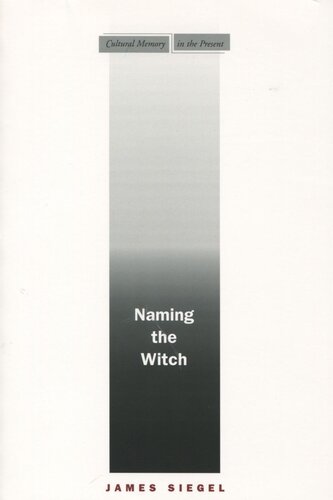

Most ebook files are in PDF format, so you can easily read them using various software such as Foxit Reader or directly on the Google Chrome browser.
Some ebook files are released by publishers in other formats such as .awz, .mobi, .epub, .fb2, etc. You may need to install specific software to read these formats on mobile/PC, such as Calibre.
Please read the tutorial at this link: https://ebookbell.com/faq
We offer FREE conversion to the popular formats you request; however, this may take some time. Therefore, right after payment, please email us, and we will try to provide the service as quickly as possible.
For some exceptional file formats or broken links (if any), please refrain from opening any disputes. Instead, email us first, and we will try to assist within a maximum of 6 hours.
EbookBell Team

4.4
92 reviewsNaming the Witch explores the recent series of witchcraft accusations and killings in East Java, which spread as the Suharto regime slipped into crisis and then fell. After many years of ethnographic work focusing on the origins and nature of violence in Indonesia, Siegel came to the conclusion that previous anthropological explanations of witchcraft and magic, mostly based on sociological conceptions but also including the work of E.E. Evans-Pritchard and Claude Lévi-Strauss, were simply inadequate to the task of providing a full understanding of the phenomena associated with sorcery, and particularly with the ideas of power connected with it. Previous explanations have tended to see witchcraft in simple opposition to modernism and modernity (enchantment vs. disenchantment). The author sees witchcraft as an effect of culture, when the latter is incapable of dealing with accident, death, and the fear of the disintegration of social and political relations. He shows how and why modernization and witchcraft can often be companions, as people strive to name what has hitherto been unnameable.